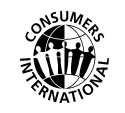Applications are invited on plain paper with complete bio-data (including photo, email
id and contact number) and attested copies of mark sheets and relevant credentials
for the appointment as Research Fellow under the scheme “UGC BSR Research
Fellowships in Science” funded by University Grants Commission, New Delhi to
School of Chemistry, Bharathidasan University.
1. Eligibility : M. Sc. Chemistry or an equivalent Degree
(The candidates who are selected for registering to the Ph.D. programme of
the University or the registration for Ph.D. may follow after the admissions)
2. Number of positions : Ten
3. Amount of Fellowship (for NET/GATE candidates) :
For non-NET/GATE candidates
: Rs. 24,800 for 1st and 2nd year
:
Rs. 27,900 for 3rd, 4th and 5th year :
Rs. 21,700 for 1st and 2nd year
: Rs. 24,800 for 3rd, 4th and 5th year
with contingency grants as per UGC rules and HRA as per University rules
